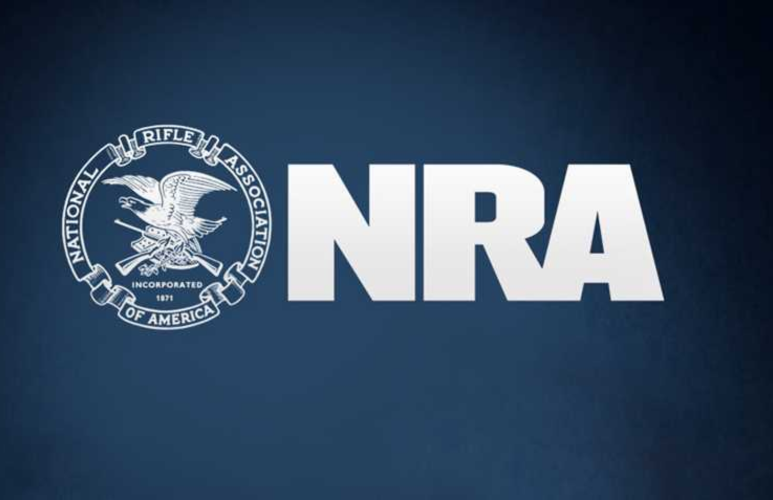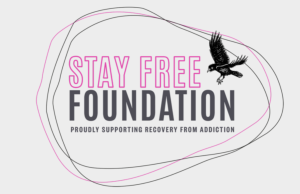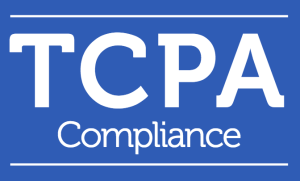Recent board turmoil and financial struggles at the National Rifle Association (NRA) appear to have come to a boil in a lawsuit claiming financial improprieties so vast that the New York Attorney General’s Office is seeking dissolution of the 149-year-old organization.
In a complaint filed with the New York Supreme Court in early August, New York Attorney General Letitia James also aims to bar four current and former executives from serving on the boards of any charity in the state. The suit charges the NRA as a whole, as well as Executive Vice President Wayne LaPierre, who has led the organization for nearly three decades, former Treasurer and Chief Financial Officer Wilson “Woody” Phillips, former Chief of Staff and Executive Director of Operations Joshua Powell and corporate Secretary and General John Frazer with failing to manage the NRA’s funds, contributing to a loss of $64 million over three years.
The AG’s investigation began in February 2019, several months after a settlement to close the Donald J. Trump Foundation after accusations of self-dealing and other improprieties at the foundation. James cited the Trump Foundation case as precedent for the NRA lawsuit.
The New York complaint alleged that the NRA board’s audit committee was negligent and failed to assure standard fiscal controls or respond adequately to whistleblowers while also taking steps to conceal those concerns from external auditors, on top of failure to review potential conflicts of interest for employees.
The failure of the NRA to comply with multiple fiduciary responsibilities and state and federal laws resulted in the NRA seeing substantial losses on its balance sheet, according to James, from a surplus of $27.8 million in 2015 to a net deficit of $36.2 million in 2018 — contributing to a total loss of more than $64 million in three years.

A power struggle among the NRA’s 76-member board likely played a part in the investigation. Retired U.S Marine Lt. Col. Oliver North stepped down in April 2019 following a year as board president after he raised allegations of financial improprieties by LaPierre. The lawsuit also cited instances where whistleblower and conflict of interest policies were essentially ignored or concealed.
Also cited in the complaint is Ackerman McQueen, an Oklahoma City, Okla., advertising and public relations firm that was once the NRA’s largest vendor. The two parties have been in litigation since parting ways last year. The New York AG alleges that the firm would aggregate expenses into a lump sum and provide no details on the nature of the expenses when billing the NRA. A message seeking comment from Ackerman McQueen was not returned by presstime.
In a statement posted to its Twitter account, NRA President Carolyn Meadows called the New York lawsuit a “baseless, premeditated attack on our organization and the Second Amendment freedoms it fights to defend,” questioning the timing of the investigation as the 2020 election cycle gears up.
Representing March For Our Lives Action Fund (MFOL), Marc Owens wrote to then-Acting New York Attorney General Barbara Underwood in November 2018 asking that the office investigate the NRA because of apparent violations of New York state charity law and filing misleading tax returns with the state and Internal Revenue Service (IRS).
MFOL was formed by students at a Parkland, Fla., high school to advocate for ending gun violence and mass shootings. Some of the issues are so clear cut, he said, that it’s a wonder the NRA had managed not to get investigated sooner. Owens is a partner at law firm Loeb and Loeb in Washington, D.C., and a former director of the Exempt Organizations Division of the IRS from 1990 to 2000.
Between 2008 and 2013, the NRA filed tax forms indicating no payments for outside lobbyists for lobbying activity, Owens said. At the same time, lobbyists were hired who had to comply with ethics rules applicable to lobbying activity at the federal level about who they represented and how much they were compensated.
“The two answers were not consistent,” Owens said, with lobbyists reporting hundreds of thousands of dollars. “Their board comprises lots of people who know what the rules are, theoretically,” he said.
The IRS has indicted and convicted people for much smaller amounts, Owens said, citing former Fiesta Bowl CEO John Junker, who was sentenced to four months in prison after failing to report lobbyists and making contributions to political campaigns.

“Any attorney general who had that stuff come across their desk… would feel compelled to do something. – Robert Tigner, general counsel The Nonprofit Alliance
“Regardless of the current allegations against NRA, this is a breathtaking move in the annals of nonprofit activity because the NRA is so large — its annual contributions well exceed $100 million, none of it tax-deductible — and because the issue of gun rights is such a divisive one in American politics,” Doug White, the former director of the fundraising management graduate program at Columbia University in New York, wrote in a post on LinkedIn.
Robert Tigner, general counsel at The Nonprofit Alliance, a coalition of charities that lobbies on nonprofit regulations, said any state that had the capacity would have filed suit given the news coverage of the consulting contracts and reimbursed expenses for NRA executives. “Any attorney general who had that stuff come across their desk, with the nonprofit whose domicile would be in their state, would feel compelled to do something — even if they didn’t have resources,” Tigner said. States regulators have the capacity to be “far more athletic” than the IRS, which can’t install a new board but can punish individuals and organizations for executive benefits.

“It’s good that the New York attorney general is bringing this action. The violations of nonprofit law called out for it,” said Philip Hackney, an associate professor of law at the University of Pittsburgh School of Law. He also spent five years in the Office of the Chief Counsel at the IRS where he drafted regulations, advised the Tax Exempt and Government Entities commissioner, and litigated exempt organization tax issues. “It’s the right thing to do and I’m glad she’s doing it,” he said, despite likely being called out as partisan even though James is likely helping NRA members, who probably tend to be conservative.
Numerous media reports about the NRA’s board issues and finances in recent years called for someone to investigate and take action to hold people accountable, Hackney said. “When you find these types of long-term violations of law, associated with running a nonprofit that’s considered charitable, you have no choice but to bring this action,” he said. “I was a little surprised that she brought the dissolution action but when you read the standard for long-running fraud, it makes all the sense in the world,” Hackney said.
“Involuntary dissolutions of charities that are actively doing things are rare but this case is similar in many ways to reported dissolutions in the past,” said Brian Galle, a professor at Georgetown Law Center. “In those cases, such as one from Tennessee in 2002 and one from New York in the 1970s, the AG alleged that corporate insiders had diverted large sums of money from charitable purposes to their own use,” he said.
“If it were me I’m not sure I would dissolve the organization. That effectively punishes the very donors who were ripped off by LaPierre and his cronies. On the other hand, after the dissolution, the money will still go to organizations that serve similar goals to the NRA, so donors are still getting something like what they wanted,” Galle said. “At the end of the day, it’s a tough call. You don’t want to see serious wrongdoing go unpunished, and thereby give the green light to other organizations to lie and cheat on their New York filings. But there are also relatively innocent victims who get hurt, too.”
The facts meet the standard of New York’s nonprofit corporation code, according to Hackney. “It’s long, extensive, throughout the entirety of the organization. If you don’t bring it [dissolution] now, I don’t know when you do,” he said. Now it’s up to a judge to consider the public interest and whether it’s possible for the organization to be reformed, he added.
In the case of the Trump Foundation, where it’s one person and one family, Hackney said it was impossible to reform. An organization like the NRA, however, has a real mission that millions of Americans believe in strongly and the Second Amendment is ensconced in the Constitution. “In that circumstance, presumably, it’s possible to reform the organization,” he said.

“I’m not sure I would dissolve the organization. That effectively punishes the very donors who were ripped off. – Brian Galle, professor Georgetown Law Center
“It doesn’t matter if you’re a membership organization or receiving contributions, grants, etc., you’ve been entrusted with these assets to use for your exempt purposes, which do not include enrichment of people in charge,” said Meghan Biss, an attorney with the exempt organizations practice with Washington, D.C.- based Caplin & Drysdale and a former technical advisor to the director of the Exempt Organizations at the IRS. Abuse of an organization’s mission, damages fundraising for the mission and misuses members’ contributions, she said.
In general, the rules about how an organization’s funds are supposed to be spent, there’s a prohibition against private inurement, with a penalty and excise tax for excessive benefit transactions. Executives can receive reimbursement of “reasonable expenses or payments” that are not in violation of the IRS code, she said, but the issue becomes a problem when an officer or director starts to receive payments outside of a reasonable level that are not approved.
A recent tax form indicated the NRA had 76 board members. “That’s a very large board,” Biss said. Actions asserted in the AG’s complaint reflected on a small number of individuals and board members who were in a position, in the way allegations describe, to essentially have unfettered control without board oversight, she said.
“Organizations across the board should be on complete and total notice that their by-laws and governing documents, conflict of interest policies, whistleblower policies, matter,” Biss said. “State regulators can and do look at them and see if they’re being followed,” she said.
“An organization that is large, has funds, with people at the top who can direct funds toward their own benefit — that’s a nonpartisan thing. It can happen to any organization that does not have proper governance roles,” she said.
The complaint alleges that the four defendants failed their fiduciary duty to the organization and used millions of dollars from reserves for their personal use, including trips for them and their families to the Bahamas, private jets, expensive meals, and other private travel. The AG’s office seeks to recoup millions in lost assets.
Phillips also oversaw the financial practices that allegedly allowed millions of dollars in entertainment and travel expenses incurred by NRA executives to be fraudulently billed to the NRA as disbursements by the NRA’s largest vendor, Ackerman McQueen, an Oklahoma-based advertising and public relations firm, which severed ties in 2019.

“The transfers from the NRA Foundation to the NRA are noteworthy for both their size and timing… raising questions about the propriety of the transfers. – Brian Mittendorf, senior associate dean Ohio State University
Ackerman McQueen was paid more than $70 million in just 2017 and 2018 for “public relations and advertising” services and for “out-of-pocket expenditures” that went to entertainment and travel incurred by NRA executives and associates, James alleged. The expenses billed to the NRA for out-of-pocket expenses did not comply with IRS requirements, and, as a result, all such expenses should have been included by the NRA in taxable personal income for LaPierre and other recipients.
The advertising firm would aggregate expenses into a lump sum amount and provide no details on the nature or purpose of the expenses when billing the NRA, according to the complaint.
Under New York law, James said the NRA’s audit committee is responsible for overseeing the accounting and financial reporting processes of the organization and the audit of its financial statements, but the “culture of noncompliance and disregard for the internal controls is evident within the audit committee.”
The committee chair testified that “there is no internal auditing” within the NRA and there hadn’t been one in the 19 years he served on the NRA board, according to the Attorney General’s Office.
Foundation Also Investigated
The NRA also faces a lawsuit through its charitable arm, the NRA Foundation. In a 24-page complaint filed in the Superior Court of the District of Columbia Civil Division, Washington, D.C., Attorney General Karl Racine alleged that the foundation allowed “charitable funds to be used for non-charitable purposes, failed to operate independently, and placed the NRA’s interests ahead of its own charitable purposes.” The Office of the Attorney General (OAG) also alleges that the foundation’s board was controlled by the NRA and allowed the NRA to exploit it through risky, multimillion-dollar loans.
The complaint alleges that the NRA still owes the foundation $5 million from board-approved loans in 2017 and 2018 totaling $10 million. The board also granted requests to extend and modify loan terms in ways that benefited the NRA but harmed the foundation, including a change that allowed the NRA to repay other debt first.
Racine also alleges that the foundation agreed to “unjustified increases” in the fees paid to the NRA to run the organization. In 2018, the NRA increased the foundation’s management fees by almost $5.9 million, including a $4-million “catchup fee” to be paid immediately, but never provided documentation that the payments were being used for charitable purposes.
During the recent years’ financial squeeze that the NRA has faced, it has increasingly relied on cash infusions from the NRA Foundation in the form of support for programs, reimbursements for shared costs, and even loans, according to Brian Mittendorf, senior associate dean for staff, human resources, and culture at The Ohio State University’s Fisher College of Business.
“Though transfers from charities to affiliated social welfare organizations are permissible, they must follow processes to ensure the transferred funds are used specifically for the charities’ core mission,” he said. “The transfers from the NRA Foundation to the NRA are noteworthy for both their size and timing. These features certainly raise questions about the propriety of the transfers.”
It’s not unheard of for a tax-exempt 501(c)(3) organization and its social welfare 501(c)(4) arm to share expenses and assets but those allocations were going up over time which raised red flags, Mittendorf said. “As an outsider, it’s hard to know the propriety of those things. I’d be interested to see those transactions,” he said. The concern is the resources that flow from the c3 to the c4 still have to maintain a charitable purpose of the c3’s mission, such as running an education program or something consistent with its tax exemption.
Location, Location, Location
The NRA is a 501(c)(4) social welfare organization incorporated in New York in 1871, but headquartered in Fairfax, Va., with a separate 501(c)(3) charitable arm, the NRA Foundation, incorporated in the District of Columbia.
Several people, including President Donald J. Trump and Arkansas Gov. Asa Hutchison, have suggested that the NRA move to a state that’s more welcoming to gun owners or gun rights. That’s not as simple as it sounds. Under New York State nonprofit law, an organization must first get the approval of the attorney general before transferring assets to another state. Registering or incorporating in another state would essentially be like starting from scratch.
A day after announcing the complaint, James issued another statement dispelling suggestions that the NRA leave New York to re-register in another, more gun-friendly state. “While President Trump and others have suggested that the NRA should simply pick up and leave New York in an effort to evade responsibility, I’d remind them that we shut down the president’s own foundation, recouped millions in diverted funds after unearthing the illegal use of charitable funds, and directed those funds to lawful organizations for legitimate charitable purposes. We intend to do the same with the NRA,” said James, a Democrat. No charity in New York state can dissolve and relocate to another state without approval of the state Attorney General’s Office or the state Supreme Court.
In an interview on Fox & Friends Weekend, Texas Attorney General Ken Paxton welcomed the NRA to move to the Lone Star State. “Well, I think it’s a little late now but we certainly would invite them to come to Texas to avoid this in the future because if they’re in New York it opens them up to investigation by the attorney general’s office in a way that I don’t think would happen in Texas,” the Republican said.
“What my problem is,” said Paxton, “is how it’s being done: right before an election, big press conference, political circus. It looks extremely political. If you want to do this investigation, do it quietly, if you’re going to announce something, announce it after the election,” Paxton said. “I think it really hurts the credibility of the New York office when they’ve done it in this manner.”












